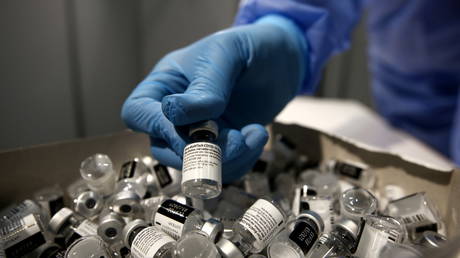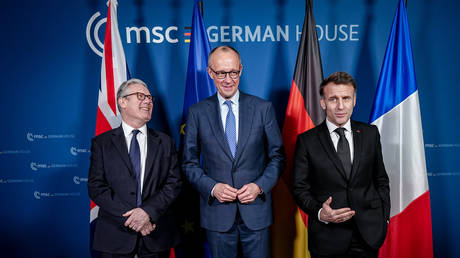
Covid-19 jabs are being distributed unevenly between EU member states, Austrian Chancellor Sebastian Kurz said, pointing to “secret contracts” signed at a “vaccine bazaar” with big pharma by the bloc’s vaccination steering board.
“Deliveries are not happening in line with population,” Kurz told a press conference organized at short notice on Friday. He added that the situation would likely be “exacerbated in the coming months” and said the differences between member states could become “even greater.”
The chancellor said that delivery data for the jabs showed some strange differences in how vaccination campaigns are proceeding in different states. He said he had discussed the issue with officials from Belgium, Greece, Poland, Slovenia and the Czech Republic.
According to Kurz, while 15 percent of Malta’s population had already received their first vaccine dose, only 11 percent of Hungarians and nine percent of Danes got it. Bulgaria and Latvia are currently lagging further behind as just three percent of the population there got their first dose.
The root of the problem lies not in how quickly countries are rolling out their campaigns, but in the fact that some nations somehow received more doses in relation to their population than others, Kurz said. By the end of June, Malta is about to receive three times as many doses as Bulgaria in relation to their respective populations, he said, adding that the Netherlands would get twice as much as Croatia.
Brussels had initially said vaccine doses would be evenly distributed between member states in accordance with population sizes, but that promise has been violated, Kurz said.
He blamed the issue on the alleged existence of a shadowy “vaccine bazaar” within the EU vaccination steering board. “This body’s contracts are secret and I have not seen them,” he told reporters.
The chancellor, however, stopped short of pinning the blame directly on Brussels and said his words should not be seen as a rebuke to the EU, adding that he merely seeks more transparency on the bloc’s vaccine contracts.
“The main question must be what happens in the next few months. If the trend continues like this, there will be massive inequality in the EU,” Kurz said, saying such a situation would contradict the spirit of the bloc.
A spokesman for the EU Commission confirmed to the Austrian media that inequalities in vaccine distribution do exist but blamed this situation on decisions taken by individual member states. Each state can decide on acquiring more or less vaccines than the target amount set for it by the EU, he explained, adding that a member state can even decide to opt out of vaccine deliveries under the EU program altogether – and its share can be then purchased by another state.
The Brussels representative also said that all major decisions taken by the steering board are agreed between all the EU member states and the EU Commission.
The political opposition in Austria responded to Kurz’s claims with skepticism, with health policy spokesman for the Social Democrats, Philip Kucher, calling it an “unworthy attempt” to find a “scapegoat” for the government’s own poor handling of the vaccination campaign at home. The liberal NEOS party leader, Beate Meinl-Reisinger, called it a “distraction.”
Kurz’s words come just a day after Hungary also demanded the EU publish all its vaccine purchase contracts in a push for more transparency. Budapest itself disclosed data on the prices of Russia’s Sputnik V vaccine and China’s Sinopharm jab it procured.
“We ask the European Commission that it also publish the contracts signed by Brussels,” Prime Minister Viktor Orban’s chief of staff, Gergely Gulyas, said.
Think your friends would be interested? Share this story!




